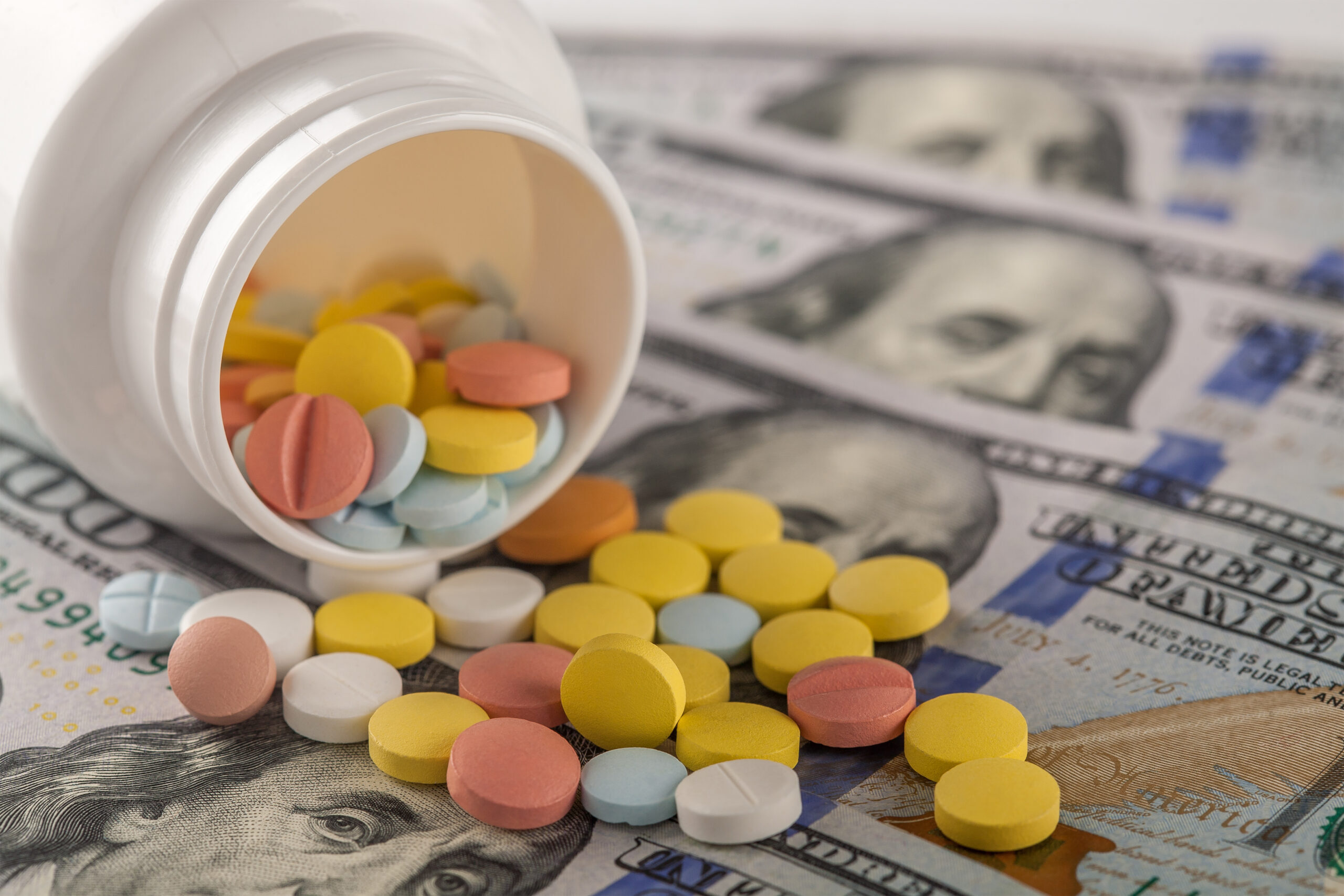© 2024 CSRXP- All Rights Reserved

BIG PHARMA EARNINGS WATCH: ABBVIE AND ASTRAZENECA
Feb 28, 2023
Big Pharma Giants Once Again Top Wall Street Expectations in Final Round of Fourth Quarter Earnings Reports While Continuing to Price-Gouge American Patients
A final round of Big Pharma 2022 fourth-quarter earnings reports from AbbVie and AstraZeneca showcases the pharmaceutical industry continues to ride high on blockbuster profits, fueled by price hikes and egregious anti-competitive tactics. Both brand name drug companies kept a Big Pharma Q4 winning streak going by reporting strong fourth-quarter earnings after engaging in price-gouging behavior or hiking prices over the last year.
AbbVie
- AbbVie reported fourth quarter earnings that beat Wall Street analysts’ forecasts, posting fourth-quarter earnings of $2.4 billion.
- For the full year, AbbVie reported profit of $11.84 billion and revenue of $58.05 billion.
- The drug maker reported $15.1 billion in sales for the fourth quarter, up from $14.8 billion the year prior.
- AbbVie’s blockbuster arthritis drug Humira, the world’s top-selling drug since 2012, also beat wall street estimates, increasing sales to $5.6 billion for the quarter.
- The company’s immunology portfolio performed strongly, with Skyrizi bringing in $1.58 billion and Rinvoq bringing in $770 million.
AstraZeneca
- AstraZeneca topped Wall Street analysts’ profit forecasts in the fourth quarter, driven by strong performance in the company’s oncology portfolio, in particular from cancer drugs Tagrisso and Imfinzi.
- Oncology sales were up 18 percent year over year, with Tagrisso bringing in $1.34 billion and Imfizi bringing in $752 million.
- AstraZeneca’s kidney disease and diabetes drug Farxiga also brought in an additional $1.18 billion in sales in the quarter.
The strong earnings come as both brand name drug manufacturers have received attention in recent years for engaging in – or planning – egregious price increases on prescription medications in their portfolios.
AbbVie
- AbbVie launched a new round of price increases to start the year.
- This included eight percent increases each on the company’s blockbuster autoimmune drugs Humira and Skyrizi.
- Humira’s price has almost doubled since 2012, from about $19,000 to $38,000.
- AbbVie currently holds more than 130 patents on Humira in the United States that helped block competition for up to 39 years. Humira will finally start to face biosimilar competition in the U.S. this year.
AstraZeneca
- AstraZeneca also participated in a new round of price hikes to start 2023.
- The brand-name drug maker hiked prices on 27 medications in 2022, including on at least eight drugs last summer.
- In 2021, AstraZeneca increased prices on 19 different drugs – including on hyperkalemia drug Lokelma and blockbuster drug Symbicort.
AstraZeneca has a long history of hiking prices on Americans struggling to afford their medications:
- AstraZeneca Was One Of Several Companies To Participate In Big Pharma’s Biennial Pandemic Price Hikes – despite the unprecedented economic uncertainty facing millions of Americans grappling with the pandemic – by increasing prices on 18 drugs, including on popular cholesterol drug Crestor and blockbuster drug Symbicort. (Tori Marsh, “Live Updates: July 2020 Drug Price Increases,” GoodRx, 8/3/20)
- In Anticipation Of Generic Competition For Its Blockbuster Anti-Ulcer Drug Prilosec, AstraZeneca, “Introduced And Pushed Doctors To Prescribe” A New Drug “Which Was Only Slightly Chemically Different From Prilosec But Had 13 Years Of Patent Protection Left.“The Report Estimates The One-Year Cost Of This Product Hop To Be Almost $2.4 Billion. “The anti-ulcer drug Prilosec was, at one time, the top drug by sales in the United States. In 2000, before its scheduled patent expiration the following year, Prilosec sales reached $4.1 billion (NIHCM Foundation, 2001). In anticipation of generic competition for its blockbuster product, AstraZeneca, Prilosec’s manufacturer, introduced and pushed doctors to prescribe its new anti-ulcer drug, Nexium, which was only slightly chemically different from Prilosec but had 13 years of patent protection left. A lawsuit alleging that AstraZeneca engaged in anticompetitive behavior with Prilosec and Nexium was dismissed in early 2008 when a district court found that AstraZeneca “did not eliminate consumer choice” (Callan, 2015). But antitrust experts have pointed out that the court’s reasoning ignores “the realities of drug markets,” where a prescription for a single-source brand drug removes the option of a generic version (Carrier and Shadowen, 2016).” (Alex Brill, “The Cost of Brand Drug Product Hopping,” Matrix Global Advisors, 9/11/20)
Read more on Q4 earnings from Merck, Sanofi, Bristol-Myers Squibb and Eli Lilly HERE.
Read more on Q4 earnings from Pfizer, Amgen, GlaxoSmithKline, Novartis and Johnson & Johnson HERE.
Learn more about solutions to lower prescription drug prices and hold Big Pharma accountable HERE.
